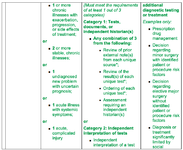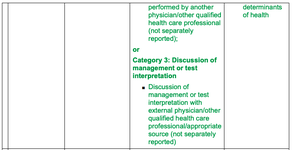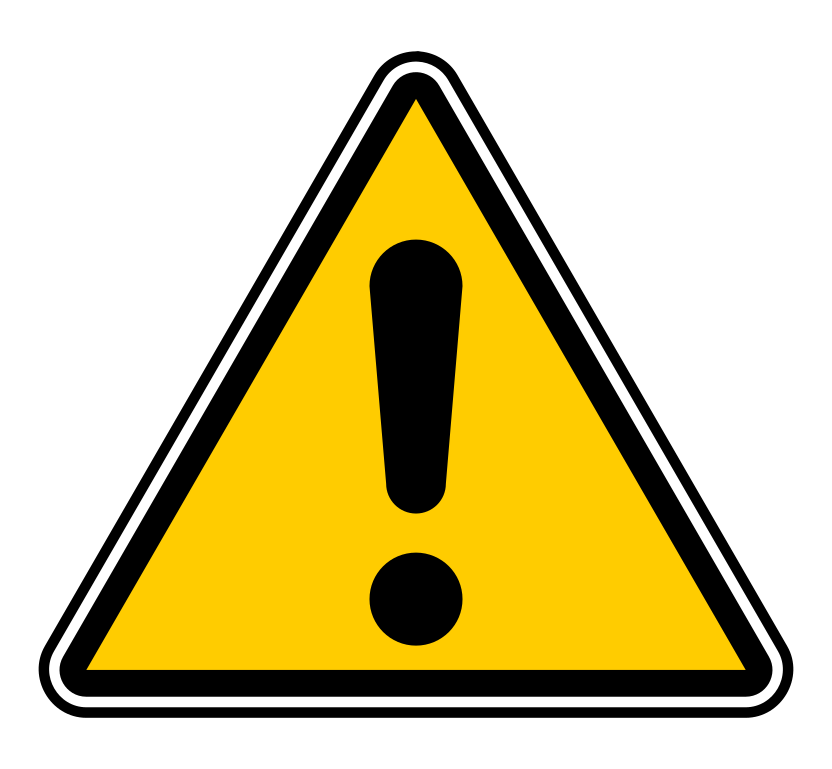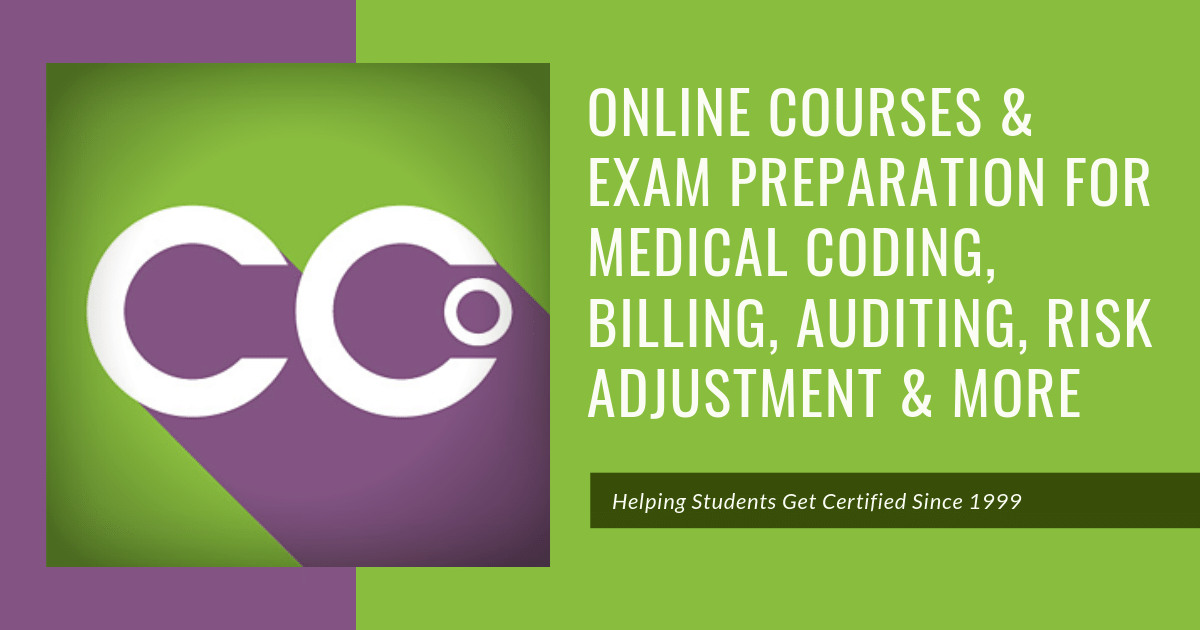I agree with Alicia.
AMA states that a patient is not stable if they are not at their treatment goal.
If the provider is managing prescription drugs, you have a moderate risk.
Therefore with a moderate complexity and a moderate risk, you have a 99214 visit.


 Stable, chronic illness:
Stable, chronic illness:
A problem with an expected duration of at least one year or until the death of the patient. For the purpose of defining chronicity, conditions are treated as chronic
whether or not stage or severity changes (eg, uncontrolled diabetes and controlled diabetes are a single chronic condition). "Stable" for the purposes of categorizing MDM is defined by the specific treatment goals for an individual patient. A patient who is not at his or her treatment goal is not stable, even if the condition has not changed and there is no short-term threat to life or function. For example, a patient with persistently poorly controlled blood pressure for whom
better control is a goal is not stable, even if the pressures are not changing and the patient is asymptomatic. The risk of morbidity without treatment is significant.
Acute, uncomplicated illness or injury:
A recent or new short-term problem with low risk of morbidity for which treatment is considered. There is little to no risk of mortality with treatment,
and full recovery without functional impairment is expected. A problem that is normally selflimited or minor but is not resolving consistent with a definite and prescribed course is an acute, uncomplicated illness.
Acute, uncomplicated illness or injury requiring hospital inpatient or observation level care:
A recent or new short-term problem with low risk of morbidity for which treatment is required. There is little to no risk of mortality with treatment, and full recovery without functional impairment is expected. The treatment required is delivered in a hospital inpatient or observation level setting.
Stable, acute illness:
A problem that is new or recent for which treatment has been initiated. The patient is improved and, while resolution may not be complete, is stable with respect to this condition.
Chronic illness with exacerbation, progression, or side effects of treatment:
A chronic illness that is acutely worsening, poorly controlled, or progressing with an intent to control progression and requiring additional supportive care or requiring attention to treatment for side effects.
Undiagnosed new problem with uncertain prognosis:
A problem in the differential diagnosis that represents a condition likely to result in a high risk of morbidity without treatment.
Acute illness with systemic symptoms:
An illness that causes systemic symptoms and has a high risk of morbidity without treatment. For systemic general symptoms, such as fever, body aches, or fatigue in a minor illness that may be treated to alleviate symptoms, see the definitions for self-limited or minor problem or acute, uncomplicated illness or injury. Systemic symptoms may not be general but may be single system.
Acute, complicated injury:
An injury which requires treatment that includes evaluation of body systems that are not directly part of the injured organ, the injury is extensive, or the treatment options are multiple and/or associated with risk of morbidity
Chronic illness with severe exacerbation, progression, or side effects of treatment:
The severe exacerbation or progression of a chronic illness or severe side effects of treatment that have significant risk of morbidity and may require escalation in level of care.
Acute or chronic illness or injury that poses a threat to life or bodily function:
An acute illness with systemic symptoms, an acute complicated injury, or a chronic illness or injury with exacerbation and/or progression or side effects of treatment, that poses a threat to life or bodily function in the near term without treatment. Some symptoms may represent a condition that is significantly probable and poses a potential threat to life or bodily function. These may be included in this category when the evaluation and treatment are consistent with this degree of potential severity.
More E/M at this free resource thread:
What’s Changing for E/M Codes 99201-99215 in 2021? https://www.aapc.com/evaluation-management/em-codes-changes-2021.aspx#:~:text=The%202021%20guidelines%20also%20take,the%20risk%20of%20complications%20and%2F

www.cco.community






